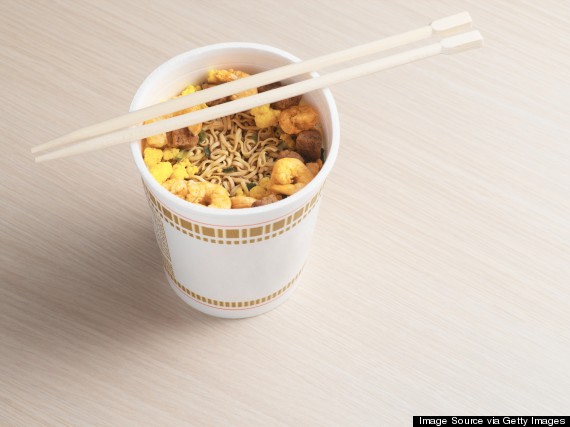It's not every day that we'd suggest browsing Reddit for health advice.
But many of the well-intentioned posts to a thread on which user magicmuk asked Redditors to name seemingly harmless things are actually surprisingly unhealthy contain more than a little bit of truth.
Here are just a few of their suggestions for seemingly-harmless habits that could be doing more harm than good -- plus a little science to help convince you to change your ways.
1. Sitting

As much as we desk-jockeys would like this not to be true, the Redditor who mentioned sitting in office chairs five days a week is correct. In fact, the effects of being sedentary are quite dramatic: Sitting more than three hours a day could take two whole years off your life. What's worse is that even regular exercise doesn't help.
2. Using Computers
Not only is it time that could be spent being physically active, but too much time spent in front of the screen, as one user suggested, can also mess with your sleep. In kids, the amount of time spent with electronic gadgets and gizmos seems to affect well-being and mental health.
3. Listening To Music

Headphones or earbuds are the culprit for another user, who wrote, "Most people have them turned up too loud. Nobody notices anything now, but give it 20/30 years, and you'll wish you hadn't."
We know you're trying to drown out your noisy coworkers, but pumping up the volume can mean trouble. "Repeated exposure to loud noise and music can cause hearing loss," according to the National Institutes of Health. We typically listen at about 110 decibels, but 80 or below is probably safer, Real Simple reported. (For a reference, talking is typically 40 to 60 decibels, while a concert can get up to 140.)
4. Drinking Diet Soda
Zero calories, no sugar -- what's not to like about diet soda? Turns out, artificial sweeteners may trick the brain into eating more. The sweet flavor tells the brain to expect calories, but when none come, it might send out some hunger signals to compensate.
5. Eating Processed Foods

One user had instant ramen noodles in mind in particular, writing, "Everyone thinks, 'Oh, it's just water and seasoning and noodles,' but... there's MSG and more than a day's worth of sodium." We don't mean to pick on ramen noodles, but user kaanimas makes a good point: Consumers are often all too naive about ingredients in processed and packaged foods. One container of Nissin's beef-flavored Cup Noodles contains 1,110 milligrams of sodium, only about half as much as is recommended per day, plus 13 grams of fat (7 of which are saturated), about 20 percent of your daily limit. Whether it's surprising sources of high fructose corn syrup or foods you'd never expect to contain gluten, what's most harmful is forgetting to read the labels.
6. Drinking Juice
It's almost always better to eat your fruit than drink it. When your fruit gets juiced, it loses its naturally-occurring (and filling!) fiber. Commercially-prepared juices are often high in added sugars, as this user mentions, plus, "the isolated sugar from fruit looks very much like sugar from any other source -- it is merely a mixture of fructose and glucose, to which your body responds identically," Healthy Living's Meredith Melnick reported.
7. Skimping On Sleep

User coffeebeancatfish elaborates, saying sleep deprivation is linked to changes in cognition, depression rates and immune function, and that only scratches the surface. We know too little shuteye also ups stroke, diabetes and obesity risk, not to mention short sleepers seem to die younger of any cause than people who get 6.5 to 7.5 hours a night.
